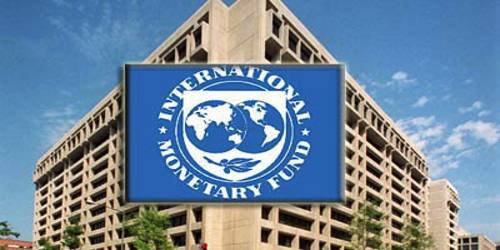Amechi Ogbonna
As part of measures to help lay foundations for strong economic recovery programmes for developing countries post COVID-19, the International Monetary Fund (IMF) yesterday, said it is developing policy options to adapt to evolving realities through a better understanding of specific challenges, risks and tradeoffs facing several countries including Nigeria as they gradually restart their economies.
Consequently, the Fund said it is seeking $17 billion in new loan resources to boost the recovery efforts of developing countries.
The statement came as IMF Managing Director, Kristalina Georgieva acknowledged pledges from Japan, France, UK, Canada, and Australia promising commitments totaling $11.7 billion, amounting to about 70 percent of the resources needed towards achieving this objective.
“This is a moment that tests our humanity. It must be met with solidarity.
There is much uncertainty about the shape of our future. But we can also embrace this crisis as an opportunity—to craft a different and better future. The outlook is dire. We expect global economic activity to decline on a scale we have not seen since the Great Depression.
This year 170 countries will see income per capita go down – only months ago, we were projecting 160 economies to register positive per capita income growth”
Earlier, at its virtual Spring Meetings last week, the Fund had said it was doubling its emergency, rapid-disbursing capacity to meet expected demand of about $100 billion for 103 countries that have approached it for emergency financing, promising that its Executive Board will have considered half of these requests by the end of April.
The IMF boss also hinted its Catastrophe Containment and Relief Trust was being reformed to help 29 of poorest and most vulnerable members, including 23 in Africa, through rapid debt service relief even as she said the Fund was leveraging the generosity of donors like the UK, Japan, Germany, the Netherlands, Singapore, and China, to increase its debt relief resources by $1.4 billion to provide immediate relief to poorest members.
In addition to these actions, the IMF boss said the objective was to triple its concessional funding via the Poverty Reduction and Growth Trust for the most vulnerable countries, in addition to supporting a suspension of official bilateral debt repayments for poorest countries through 2020 with the ground-breaking accord among G20 countries.
The debt deal was worth about $12 billion to nations mostly in need even as it called on private sector creditors to participate on comparable terms to add a further $8 billion of relief.
The Fund at its just concluded virtual Spring Meeting approved the establishment of a new short-term liquidity line that can help countries strengthen economic stability and confidence as part of a strong policy response to the pandemic.
“We also must not forget about long-standing challenges that require a collective response, such as reigniting trade as an engine for growth; sharing the benefits of fintech and digital transformation which have demonstrated their usefulness during this crisis; and combating climate change—where stimulus to reinforce the recovery could also be guided to advance a green and climate resilient economy.
Finally, in the new post-COVID-19 world, we simply cannot take social cohesion for granted. So we must support countries’ efforts in calibrating their social policies to reduce inequality, protect vulnerable people, and promote access to opportunities for all.
I have been saying for a while that this is a ‘crisis like no other.’ It is:
•More complex, with interlinked shocks to our health and our economies that have brought our way of life to an-almost complete stop; •More uncertain, as we are learning only gradually how to treat the novel virus, make containment most effective, and restart our economies; and •Truly global. Pandemics don’t respect borders, neither do the economic shocks they cause.

